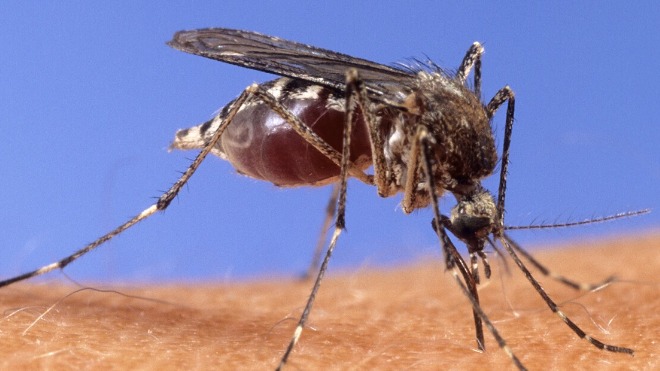West Nile Virus has been confirmed in three patients in Columbus County.
Health Department Director Kim Smith said the cases have been verified by the state.
“All three cases have occurred since July,” a press release from the Health Department said. The patients all survived, but required hospitalization.
“This is more than the average number of cases normally reported at this time of year,” the release said.
“This is a reminder that West Nile virus transmission is active in the late summer and autumn months” said Smith. “We urge residents to protect themselves from mosquito bites, and local governments to implement integrated mosquito management methods for mosquito control.”
According to the Centers for Disease Control and Prevention most people who become infected with WNV do not develop any symptoms. About one in five people who are infected develop a fever with other symptoms such as headache, body aches, joint pains, vomiting, diarrhea, or rash. About one in 150 people who are infected develop a severe illness (called neuroinvasive disease) affecting the central nervous system such as encephalitis (inflammation of the brain) or meningitis (inflammation of the membranes that surround the brain and spinal cord).
West Nile is not the only mosquito-borne virus in the state, Smith noted. Normally about 20 neuroinvasive cases of La Crosse encephalitis are reported each year in the western part of the state, and there is always a small risk of contracting eastern equine encephalitis in the eastern counties.
WNV is carried by culex variety mosquitoes, which can be more aggressive. The disease is carried by birds, which transfer the virus to humans and animals. Livestock such as horses, donkeys, mules, and ponies are most commonly infected in North Carolina.
Smith said the best defense against mosquito-borne ailments of all kinds is prevention. In the wake of Tropical Storm Debby and other storms, stagnant water abounds, giving the bugs plenty of options for breeding grounds.
“Walk around your property and empty anything that is holding water,” she said. “Keep your outside water dishes clean for your poor animals. Birdbaths are a favorite place for mosquitoes to breed. Old flower pots, buckets – anything that can hold water can hold mosquito larvae.
“Clean your gutters. They love the water in gutters where leaves and debris accumulate. If you don’t have the right angle or a filter on your gutters, you have a mosquito nursery.”
The county has a limited supply of larvacides available at Environmental Health, she said. County maintenance has also taken over spraying duties and trucks are working different areas of the county on a nightly basis. Both the county and several municipalities are regularly spraying for mosquitoes, Smith said.
Columbus County recommends individuals take the following precautions:
- Use mosquito repellent that contains DEET (or equivalent) when outside in areas where mosquitoes might be
present. Use caution when applying to children. See www.epa.gov/insect-repellents/find-repellent-right-you
that will work for you and your family.
- Install or repair and use window and door screens.
- Close doors, including garage doors. Do not leave doors propped open.
- Use air conditioning when possible.
- Reduce mosquito breeding by emptying standing water from flowerpots, gutters, buckets, pool covers, pet water
dishes, discarded tires and birdbaths at least once a week.
- If you think you or a family member might have WNV disease, talk with your health care provider.
For more information on West Nile virus and the prevention of mosquito bites visit: https://epi.dph.ncdhhs.gov/cd/diseases/wnv.html andwww.cdc.gov/westnile/faq/repellent.html.







